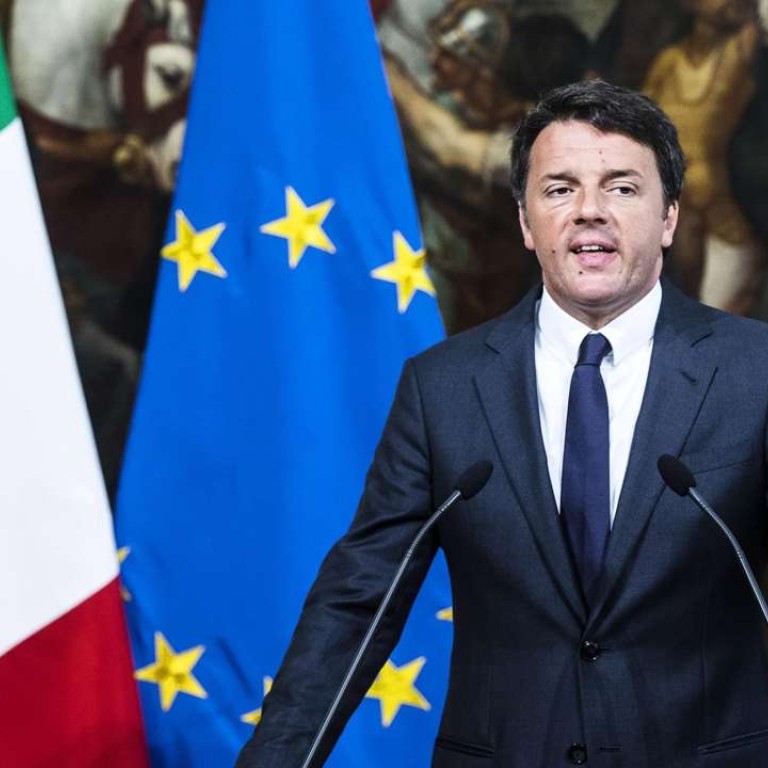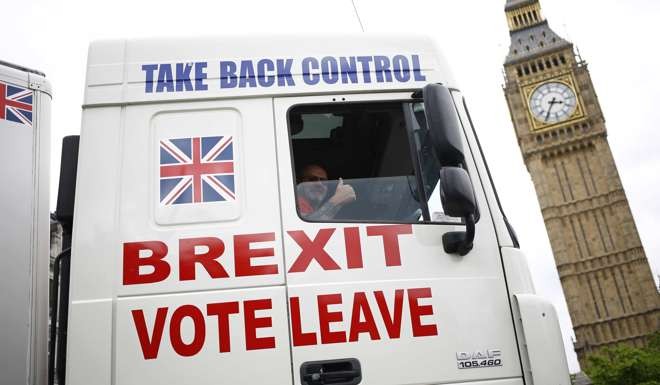
The politics of rage will spread to Italy as ‘Trump risk’ gives way to ‘Renzi risk’
An Italian referendum next month risks sparking a full-blown political crisis that threatens the entire euro zone banking system
In the space of just three-and-a-half months, a populist insurgency has taken the western democratic world by storm.
Following Britain’s shock decision in late June to vote to sever its 43-year-long membership of the European Union, Donald Trump, a real estate developer who was ridiculed when he announced his candidacy for US president, has just been elected to the highest office of the most powerful nation on Earth.
Populism is all the rage.
Even before the US election took place, anti-establishment sentiment in advanced economies was rife.
The Brexit vote was a conspicuous manifestation of what the macro research team at Barclays aptly calls the “politics of rage” in a new report.
While Britain’s decision to leave the EU is attributable to a variety of factors - the UK has long been one of the most eurosceptic countries in the bloc while the surge in immigration over the past decade (much of it from the EU’s central and east European members) has proved increasingly unpopular among large sections of the British electorate - it is, at its core, a rejection of the status quo.

According to Barclays, voters’ repudiation of the status quo in the US and UK stems mainly from “a perception among ‘ordinary citizens’ that political and institutional elites do not accurately represent their preferences amid a growing cultural and economic divide.”
Governments in developed economies are under huge pressure to placate an increasingly embittered and disaffected electorate.
Barclays notes that the political centre is collapsing in advanced economies, with the combined share of the vote for the traditional centre-right and centre-left parties falling by an average of 12 percentage points since the 1990s.
In the UK, premier Theresa May, who took office in mid-July promising to “build a better Britain not just for the privileged few”, has espoused populist rhetoric, denouncing a rootless “international elite” and pledging to put “the power of government squarely at the service of ordinary working class people,” most of whom voted for Brexit.
Investors’ sensitivity to Italy’s increasingly volatile political environment is likely to increase significantly in the coming days and weeks
In a sign of the extent to which May is worried about the “rage” of the Brexiters, the UK prime minister went so far as to defend Britain’s much-criticised right-wing tabloid newspapers which last week accused three of the country’s High Court judges of being “enemies of the people” after they ruled against May’s plan to trigger Brexit without the approval of parliament.
Yet Britain and the US are not the only countries where voters are rebelling against the political establishment.
Populist and nationalist parties have increased their share of the vote significantly in many countries in Europe’s vulnerable single currency area (almost certainly the next focal point of market anxiety, as I argued in my column last week), particularly in Italy, France and even Germany.
A toxic combination of the fallout from Europe’s refugee crisis, mounting opposition to further political and economic integration within the eurozone and, crucially, growing disenchantment with political elites has led to a surge in support for eurosceptic and anti-establishment parties.
The country to watch is Italy.
Governments in developed economies are under huge pressure to placate an increasingly embittered and disaffected electorate
According to Ecstrat, a political risk consultancy, “the success of Trump and Brexit have massively accelerated the likely breakup of the EU to maybe even next year as populist parties gain significant credence.”
On December 4, there is a significant risk that Matteo Renzi, Italy’s premier, will lose a much-anticipated referendum on constitutional reform which he has foolishly personalised by promising to resign if the vote goes against him. The biggest beneficiary of a “No” vote would be the populist Five Star Movement, Italy’s largest opposition party which wants to hold another plebiscite on scrapping the euro.
If Italy is plunged into a full-blown political crisis, the country’s creaking banking sector could come under further strain, causing ripple effects across the entire eurozone banking system.
Investors’ sensitivity to Italy’s increasingly volatile political environment is likely to increase significantly in the coming days and weeks.
In the realm of political risk, the once unthinkable has rapidly become a reality.
Even the International Monetary Fund, which rarely comments on domestic politics, says “political discord” is now the biggest risk facing the global economy.
“Trump risk” is about to give way to “Renzi risk”.

